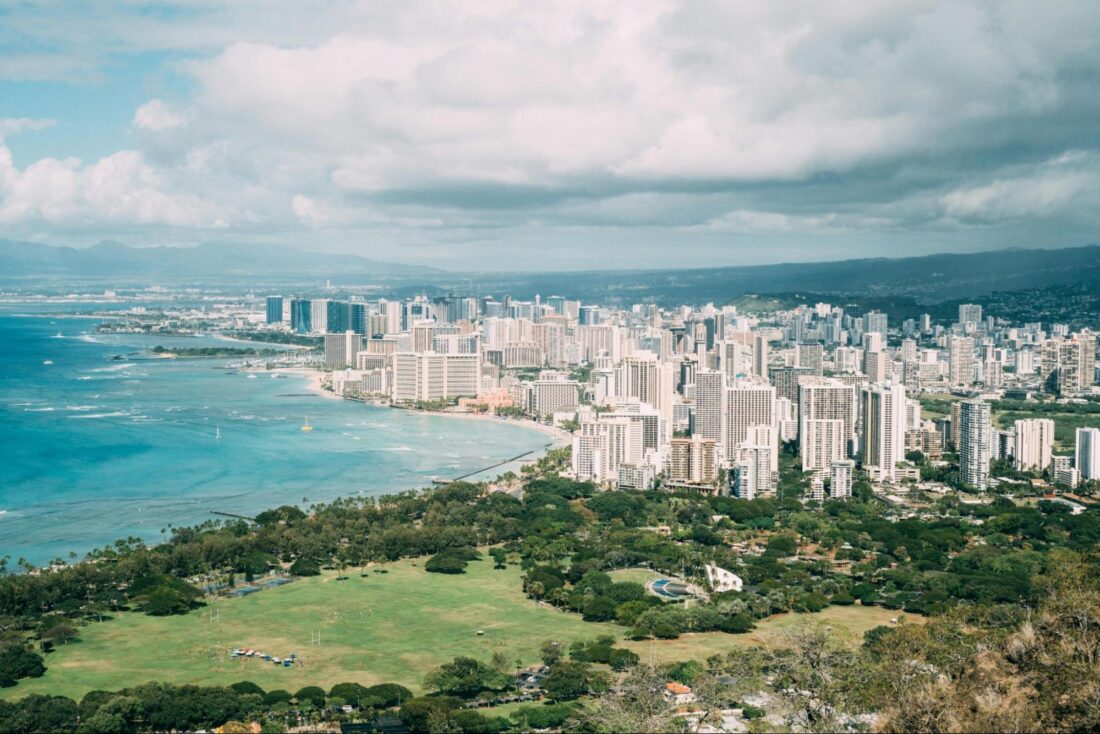Hawaii – a Pacific Haven Where Luck Is (Not) Hard to Find

A few days ago, the big news in Las Vegas’ and Hawaii’s media was that a Hawaiian won just over $1.5 million when playing slot machines at a Nevada casino.
While many compatriots from Aloha State cheered at this fact, happy for this guy, some felt it was not fair that they couldn’t try their luck on their local ground.
The State of Hawaii doesn’t allow for any sort of gambling or betting activities on its soil. In real life, this automatically means two things: Hawaiians can play the games of chance at brick-and-mortar facilities only when they go away on holidays. The guy from the introduction did exactly that and won the jackpot.
The second thing is that people residing in Hawaii have another option – immersing themselves in online games. The local law doesn’t prohibit the residents of this US state from taking part in iGaming activities, meaning they can choose from top online slot games to play or indulge themselves in poker, roulette, or other relevant games.
There’s no explicit regulation that would ban a citizen of Honolulu, Hilo, or Pearl City from registering at offshore casinos and enjoying the games they want.
Still, it’s necessary to learn more about the regulations in terms of payouts. For instance, some players decide to buy cryptocurrencies for online gaming, due to the fast payout times that many crypto iGaming platforms enable. Others immediately opt for credit cards or wire transfers to their bank accounts. In the case of the State of Hawaii, it’s vital to learn in advance how the authorities would categorize such a withdrawal and what taxes you’d have to pay.
Speaking of the rules and authorities, it’s interesting that Hawaii and Utah are the only US federal states that don’t allow any form of gambling and betting. However, there have been several attempts from the relevant stakeholders to have gambling-related bills created, trying to eventually turn them into laws.
In 2021, a bill was proposed, with the aim of giving the Hawaiian Home Lands Commission a five-year period to decide whether they would allow the launch of a gambling parlor or resort on the island of Oahu. However, the number of senators opposing this proposal was prevalent, which basically nipped the initiative in the bud.
A new attempt was launched in 2023 when several bills were incentivized during that year’s legislative session, but neither one of them made it to the final round. The reasons for such a strict attitude of the authorities are partly rooted in the traditions and customs of the local community. Also, there are opinions that legalizing gambling would increase the crime rate, giving birth to some other illegal activities.
However, if we look at the study conducted by the ACGCS (Association of Certified Gaming Compliance Specialists), legalizing gambling and betting is more likely to reduce the overall crime rate, given that the legal framework is comprehensive enough.
For instance, the State of New York reportedly collected $1.55 billion in taxes on mobile sports bets in the first two years since legalizing this activity. Had they not brought such a regulation, the New Yorkers would either ride to Atlantic City and leave a better share of this amount to the State of New Jersey or turn to international betting platforms. With such a high influx of assets, every state administration in the US can make rich plans that would help people indulge themselves in gambling and betting sessions in a rational and entertaining way.
Last but not least, when we take into account the number of tribal casinos across the US and the revenue they generate every year, we can see a significant impact on the local economies. Illustrated by numbers, the tribal gaming industry in the US generated $40.9 billion only in 2022, compared to $39 billion the year before. If we take into account the number of people employed by such companies and living off gambling activities, we can conclude that this industry only needs thought-through legislation and continuous supervision. That way, it can become beneficial to various interested parties, from the local authorities to ordinary citizens and game providers.
Perhaps Hawaii will follow suit in the time ahead, opening the door to some forms of betting, horse racing, lottery games, and gambling. If their government applies the positive rules and laws that have worked well in some other US states, Hawaiians won’t have to go and try their luck in Nevada or some other more liberal states anymore.
Until that moment comes, we might read news similar to the one in the opening of this article more often.
